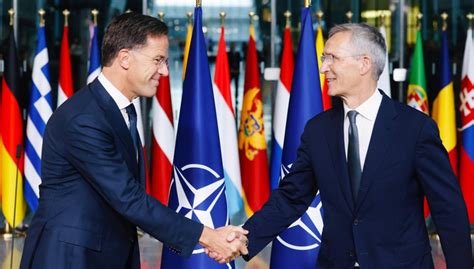BRUSSELS — NATO, the North Atlantic Treaty Organization, found itself at the center of attention following a high-stakes meeting of foreign ministers in Brussels. The atmosphere was charged with both optimism and concern as world leaders converged to discuss the future of this pivotal alliance.
A United Front:
At the heart of the discussions was NATO Secretary-General Mark Rutte, who sought to reassure critics that despite any perceived cracks, NATO stood strong. In a display of solidarity, Rutte emphasized,
“we are united in our commitment to each other in this alliance,”
underscoring the indispensable role of the transatlantic relationship in upholding European security and global stability.
Perceptions vs. Reality:
While Rutte’s words aimed to quell doubts about U.S. commitment to NATO, there were lingering concerns among member states about Washington’s long-term involvement. U.S. Secretary of State Marco Rubio dismissed suggestions of disengagement as mere
“hysteria and hyperbole,”
advocating for a more nuanced understanding of American priorities within the alliance.
Global Trade War Ripples:
The specter of a looming global trade war cast a shadow over the proceedings, with steep tariffs impacting NATO allies across Europe and Canada. The tensions escalated as Canadian Foreign Minister Mélanie Joly warned that relations with the U.S. would be forever altered by these economic skirmishes.
Uneasy Allies:
As discussions unfolded, Polish Foreign Minister Radosław Sikorski offered assurances from U.S. President Donald Trump regarding NATO’s collective defense commitments under Article 5. However, underlying unease persisted due to recent divisive actions by Washington, including military aid cuts and diplomatic disputes with key allies like Canada.
The Balancing Act:
Belgian Prime Minister Bart De Wever voiced frustration over U.S. demands for increased defense spending amid simultaneous trade hostilities and strained relations with European partners. The complex interplay between economic interests and security obligations underscored the delicate tightrope that NATO members navigated during this critical juncture.
Challenges Ahead:
Rutte faced tough questions during a press conference marred by uncertainties surrounding tariffs, defense spending targets, and geopolitical posturing by the U.S., particularly concerning Greenland. The escalating rhetoric around defense expenditure goals further fueled skepticism about sustainable alliances in an increasingly volatile international landscape.
A Call for Unity:
Despite these challenges, voices within NATO remained steadfast in their commitment to bolstering defenses and adapting to evolving security threats. Foreign ministers affirmed their dedication to meeting Trump’s calls for increased military budgets as part of a shared responsibility towards safeguarding regional stability.
As delegates departed Brussels with varying degrees of optimism and apprehension lingering in their minds, one thing remained clear – while NATO weathered storms before, its ability to navigate through turbulent waters hinged on unity, resilience, and unwavering cooperation among its diverse member states.




Leave feedback about this